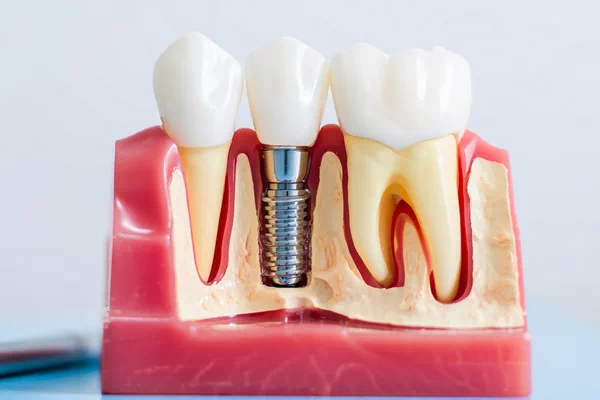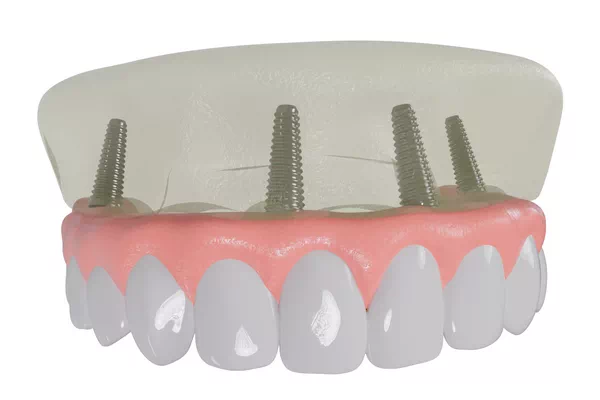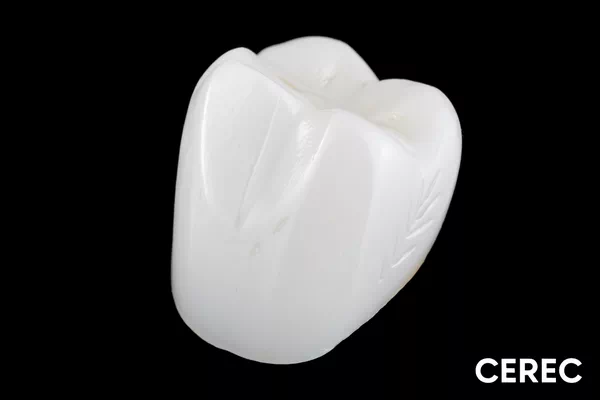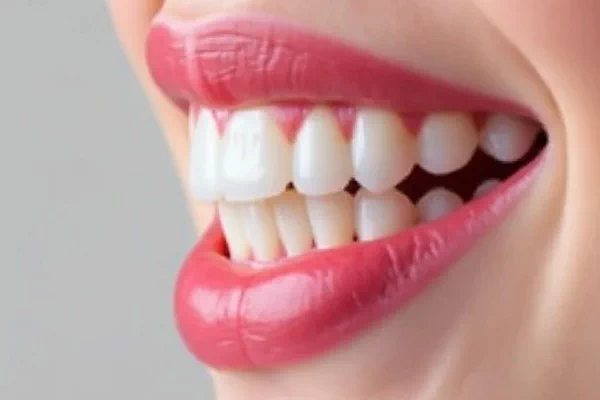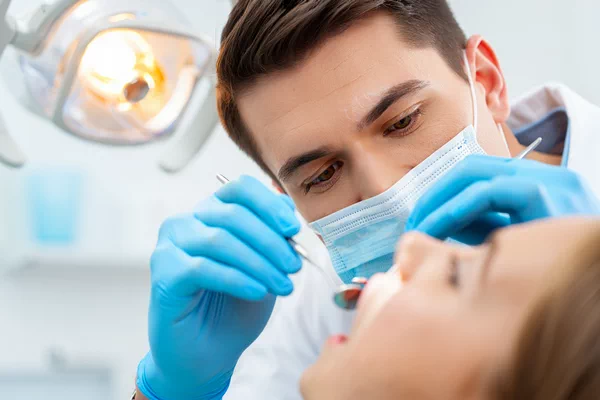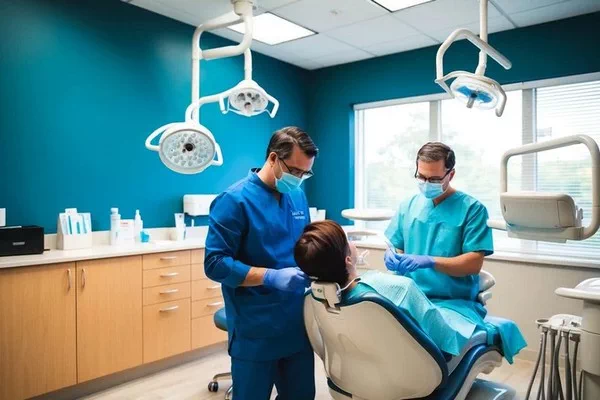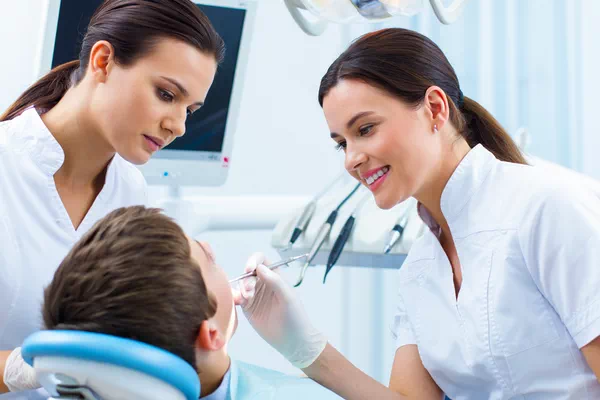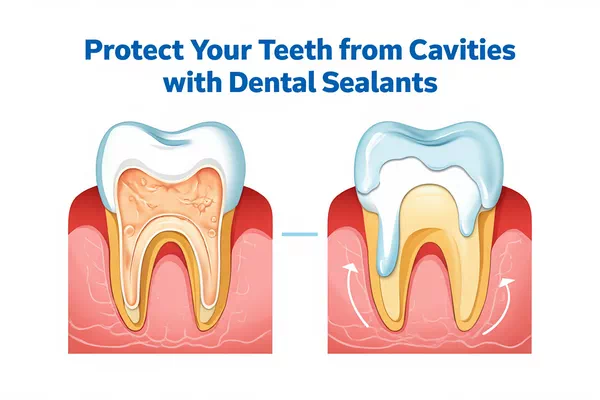Sleep Apnea Treatment in Lorton VA
Are sleepless nights a reality for you? Do you feel tired all day long? You may be one of the millions of Americans who suffer from sleep apnea.
The solution may be closer than you think – in the dentist’s chair! We take pride in helping patients regain healthy sleep, knowing how it can positively impact their lives. Imagine waking up feeling refreshed instead of exhausted after a good night’s rest.
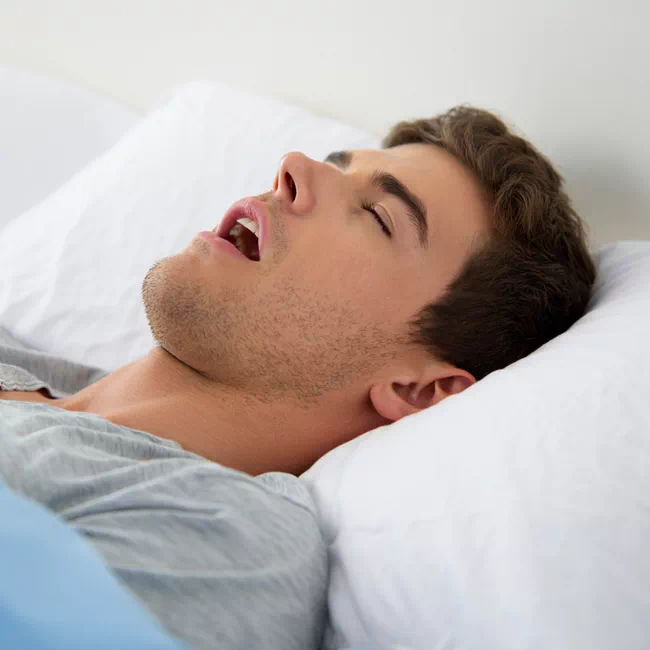
What is sleep apnea?
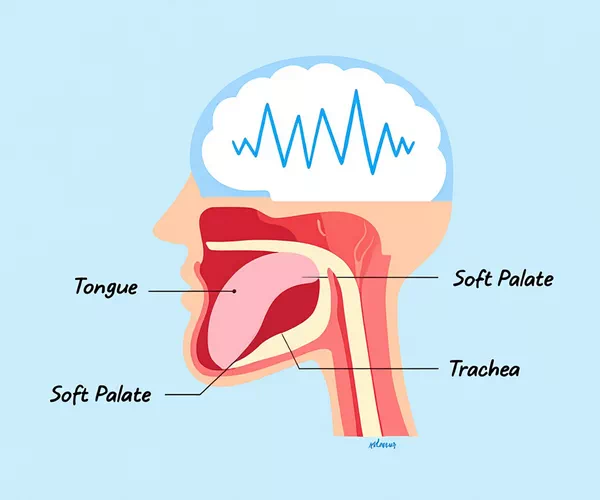
Sleep apnea is a disorder in which breathing is interrupted during sleep. The most common is obstructive sleep apnea (OSA), caused by the soft tissues of the throat and tongue relaxing, blocking the flow of air. This leads to pauses in breathing, which can recur multiple times during the night.
Ignoring OSA is dangerous because of the increased risk of cardiovascular disease, hypertension, and stroke. Interruptions in breathing cause a sharp drop in the level of oxygen in the blood, which puts additional stress on the heart and blood vessels. When breathing stops, the body tries to compensate for the lack of oxygen, which leads to increased pressure on the walls of blood vessels.
What are the common symptoms of sleep apnea?
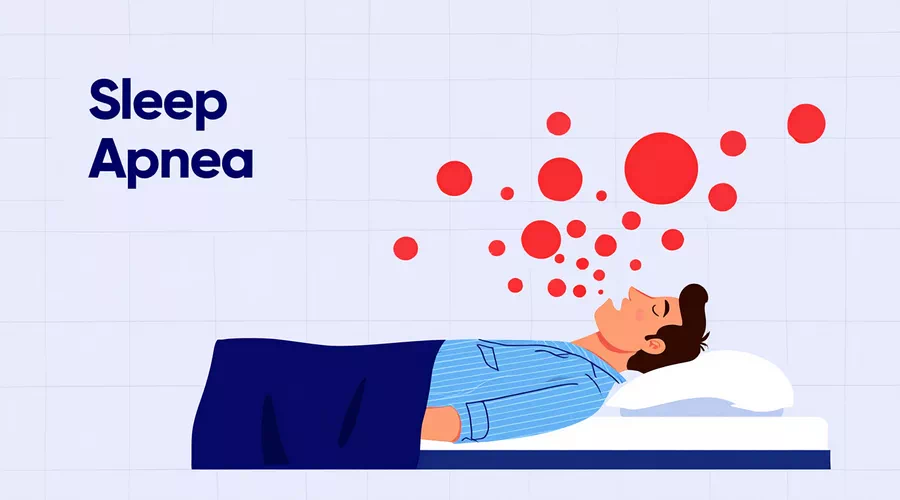
- Loud snoring:
This is one of the most common signs. Snoring is often interrupted by silence, followed by loud snoring or wheezing. - Sudden awakenings with a feeling of lack of air:
The person wakes up gasping for air, choking, or feeling suffocated. - Sleep apnea:
Others may notice that the person suddenly stops breathing for a few seconds or longer while sleeping. - Morning headaches:
Headaches upon waking up usually resolve during the day. - Extreme daytime sleepiness:
Even after seemingly adequate sleep, the person feels tired and sleepy. This can lead to problems concentrating and increases the risk of falling asleep while driving. - Difficulty concentrating:
Problems with memory, attention, and concentration, difficulty completing everyday tasks.
What Causes Sleep Apnea?
Causes of sleep apnea include:
- Obesity
- Large neck circumference
- Family history of OSA
- Male gender
- Drinking alcohol before bedtime
Do you snore loudly and have trouble sleeping?
Book an Appointment Today

The specialists of the Lorton Dentist will conduct an examination and select the optimal treatment plan to improve the quality of sleep and overall health.
Early diagnosis and treatment of sleep apnea can help prevent serious complications.
You can contact the practice online or call the number provided to schedule an appointment.
Treatment Methods for Sleep Apnea
Although gum grafting is usually successful, there are some potential risks and complications:
- One of the most common and effective treatments for moderate to severe sleep apnea is Continuous Positive Airway Pressure (CPAP) therapy. CPAP involves wearing a mask over the nose or mouth while sleeping, connected to a machine that delivers a constant stream of pressurized air. This pressurized air helps to keep the upper airway open, preventing it from collapsing and causing breathing interruptions. While CPAP can be highly effective, some individuals find it uncomfortable or difficult to adjust to wearing a mask. In these cases, alternative mask options or adjustments to the pressure settings may be explored.
- For individuals with mild to moderate sleep apnea, or those who find CPAP therapy intolerable, oral appliances may be a suitable alternative. These devices, also known as mandibular advancement devices (MADs), are custom-fitted mouthpieces that resemble orthodontic retainers. They work by gently shifting the lower jaw forward, which helps to open the upper airway and prevent its collapse during sleep. Oral appliances are often more comfortable and convenient than CPAP machines, but their effectiveness may vary depending on the individual and the severity of their sleep apnea.
- In some cases, lifestyle modifications can play a significant role in managing sleep apnea, particularly in mild cases or as an adjunct to other treatments. These modifications include weight loss, as excess weight can contribute to airway obstruction; avoiding alcohol and sedatives before bedtime, as these substances can relax the throat muscles and worsen sleep apnea; and sleeping on one’s side, as sleeping on the back can increase the likelihood of airway collapse. Additionally, regular exercise and a healthy diet can contribute to overall health and improve sleep quality.
- Surgical interventions are sometimes considered for individuals with sleep apnea when other treatments have been unsuccessful or are not well-tolerated. Uvulopalatopharyngoplasty (UPPP) is a surgical procedure that involves removing excess tissue from the throat and soft palate to widen the airway. Another surgical option is maxillomandibular advancement (MMA), which involves moving the upper and lower jaws forward to create more space in the airway. While surgery can be effective in some cases, it is generally reserved for individuals with specific anatomical abnormalities that contribute to their sleep apnea.
- Beyond these established treatments, several emerging therapies for sleep apnea are currently under investigation. These include positional therapy devices, which help to train individuals to sleep on their side; hypoglossal nerve stimulation, which involves implanting a device that stimulates the nerve that controls the tongue, preventing it from collapsing backward during sleep; and various medications that target the underlying mechanisms of sleep apnea. As research continues, these innovative treatments may offer new and improved options for managing this common sleep disorder.
FAQ
When should you see a doctor?
See a doctor if you suspect you have sleep apnea. Especially if you notice signs in yourself or your partner, such as loud snoring, pauses in breathing during sleep, excessive daytime sleepiness, morning headaches, or trouble concentrating. Early diagnosis and treatment of sleep apnea can help prevent serious complications and improve your quality of life. Don’t ignore the symptoms or put off seeing a doctor – your sleep and health are important!
Can sleep apnea be cured permanently?
Unfortunately, in most cases, sleep apnea cannot be cured permanently. However, with proper treatment and following your doctor’s recommendations, you can effectively control your symptoms and prevent complications. In some cases, especially mild to moderate cases, lifestyle changes and the use of oral applicators can lead to significant improvements and even complete elimination of symptoms. Surgery can be an effective solution in certain situations, but results vary. The key is to see your doctor early and choose the best treatment plan to improve your sleep quality and overall health.
What complications can occur if sleep apnea is left untreated?
- High blood pressure
- Cardiovascular disease (heart attack, stroke, heart failure)
- Type 2 diabetes
- Problems with concentration and memory
- Depression and anxiety
- Deaths from accidents caused by daytime sleepiness
- Liver problems

